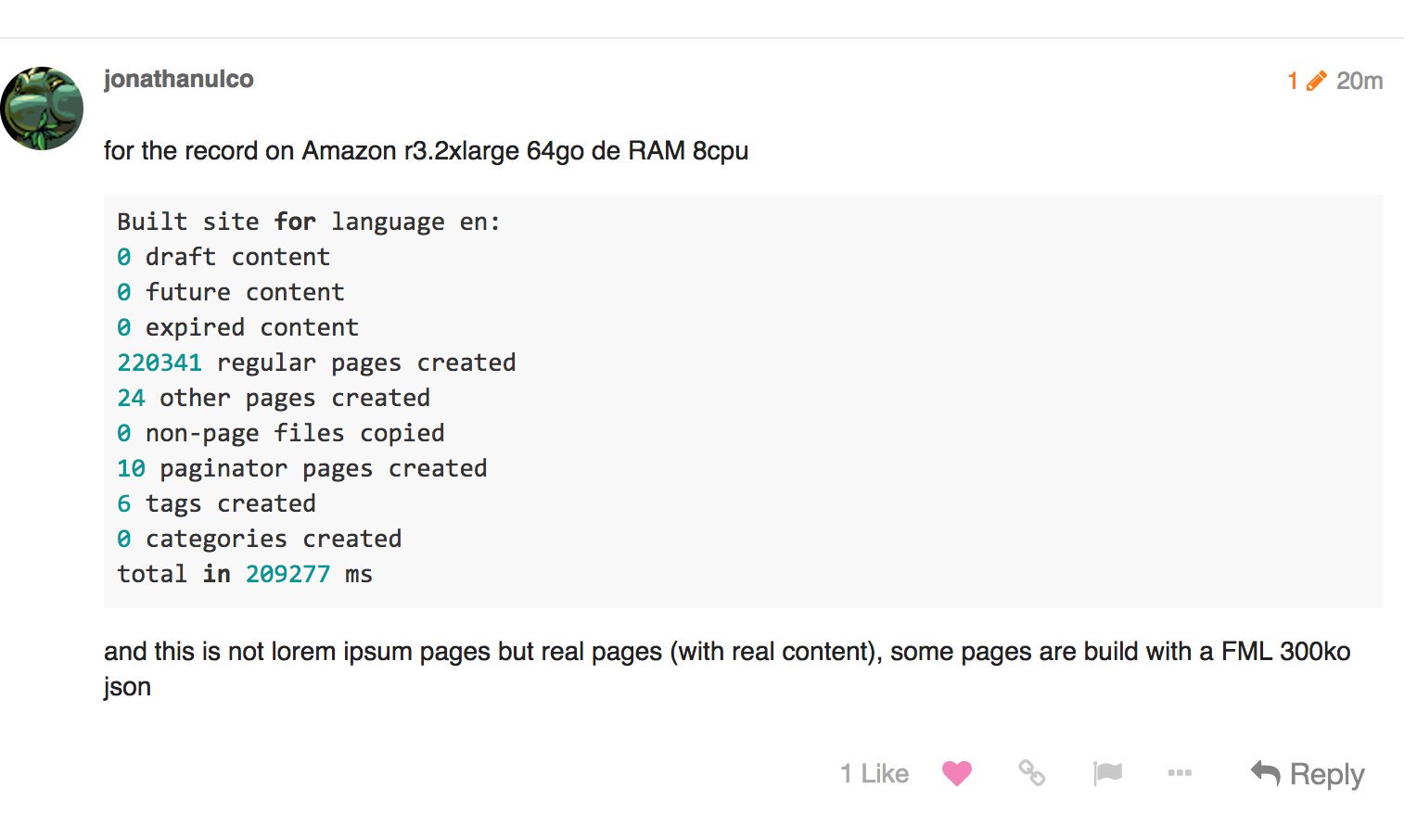How to Create Your Blog Without Wordpress

Posted

DISCLAIMER: This post may contain “affiliate” links to products and services I recommend. I’ll receive a small commission if you decide to purchase one of these products or services. I only recommend products I genuinely believe will help you in running your freelance business.
It’s never been easier to set up your own blog website. There are currently more than 500 million blogs out there on the Web. When you are starting out a lot of people are recommending to create your website using WordPress but you should know that there are other options to consider.
Here are 11 alternatives to creating your blog without WordPress. Although all of them are fairly simple, I ranked them by the level of technical knowledge needed to get up and going.
Medium

Medium, with it’s whopping 25,000,000 users, is the go-to place for starting your writing adventure if you just want to get up and going. It works just like a social media platform with the ability to like (it’s called clap on Medium), comment and follow users/publishers.
It provides you with a ton of features just by signing up like:
-
Beautiful text editor with a ton of options to pretty up your content
-
Out-of-box analytics of your profile
-
If your article is good enough it can be promoted on the home page of Medium
-
Basic SEO tools like URL customization and article description
-
You can monetize your posts if premium users like them
My first venture in blogging was via Medium. It was an awesome experience.
But you need to take in consideration that Medium has a premium plan for readers that costs $5 per month which can hurt your traffic a lot. And although I understand that they need to make money somehow while providing the best user experience, that’s a big turn off for people like me that believe in freedom of information.
Blogger

Blogger is a blog-publishing service that was founded in 1999. It was bought by Google in 2003. It provides everything you need to start for free. That includes hosting, domain (although I recommend buying a custom domain since you get a domain with ‘.blogspot.com’ in the name) and themes.
You just sign up, fill out the information about your blog and that’s it. It’s very easy to use, it’s hosted by Google so you don’t have to worry about security and installing latest updates and has really easy way to integrate AdSense to monetize your website.
Wix

Wix is one of the biggest website builders out there. It became really popular because of its elegant drag and drop tools to create beautiful websites.
A couple of reasons on why you should use Wix for your next blog are:
-
Drag and Drop website editor
-
Designer-made website themes
-
Access to a huge collection of royalty-free media to use in your posts
-
Tons and tons of plugins
-
SEO tools
-
Free hosting and domain (with /wix.com in the URL)
And all of this costs $0. You can also buy a premium plan which removes ads from your website, gives you the ability to use your own favicons and provides you with a custom domain.
Squarespace

Squarespace is pretty similar to Wix. It’s a website builder and provides basically the same features as Wix. One difference between Squarespace and Wix is that Squarespace provides better mobile support for its users.
Joomla!

Joomla! is another PHP CMS similar to WordPress. It was founded in 2005 as a fork of another popular CMS called Mambo. It’s currently powering about 3% of websites on the internet and has 6% of market share on the CMS market.
Although it’s not an as popular choice as WordPress, Joomla! is the second most popular CMS.
Even though Joomla! has a tiny community in comparison with WordPress, it still outshines WordPress in a couple of things like:
- Better support for multiple languages and localization
- It’s updated more frequently than WordPress
- I find Joomla! more easy to use than WordPress but a lot of people disagree with me
- It’s generally more secure than WordPress
So, should you use Joomla! for your blog?
Honestly, probably not. It’s awesome CMS. It’s right between the simplicity and ease of use of WordPress and complexity and power of Drupal. If you need something like a primitive social network, forum or e-commerce, Joomla! is your best bet there.
But if you need just a blog then Joomla! is not the best piece of technology.
Like What You're Reading?
Ghost
Ghost is an open-source platform for professional publishing. It’s a CMS but it’s not written in PHP but in Node.Js.
This is a sword with two edges situation. It’s a good thing because Node.Js is an amazing piece of technology that revolutionized how we write JavaScript. But it’s a bad thing because it’s not as simple to set up as PHP and definitely not as cheap.
For PHP you can literally buy $2.5/month shared hosting account and press one button to bring up your WordPress site. With Node.Js you would need to buy VPS or dedicated server and then hire someone to set it all up for you.
There are two ways to create your blog with Ghost. You can deploy open-source version yourself.
With open-source version you are getting:
- Extensible text editor
- Great SEO built-in
- AMP support
- Detailed structure data
- Tons of free themes
Ghost also provides it’s Ghost Pro plan where they take care of deployment. With Ghost Pro you get:
- Custom Domain Support
- Free SSL
- Worldwide CDN
- Automatic backups
- Enterprise-level cloud
But it’s priced at $29/month. This is a great deal if you are publishing agency without the IT department but it’s still too expensive for a Regular Joe.
Should you use Ghost for your blog? If you are techy like me that knows how to set up your own server infrastructure or you have deep pockets, yes definitely.
In any other case, I’d stay away from it.
Drupal

Drupal is the oldest one of the three big PHP CMSs. Its first release was way back in 2001. It’s running sites like League of Legends official website, Okta and IBM.
Drupal is also considered the most complex and the hardest CMS out there but that’s because it supports features that other CMSs don’t like:
- Better content types and user permissions
- Better performance for larger amounts of content and users
- It scales better
- Has better security than WordPress
Should you use Drupal to make your next blog?
If you really hate yourself then yes. Jokes aside, no. I have listed Drupal here because of its power. It can be used to make blogs, but we are talking about blogs with 100k+ users per month. Then you should consider using Drupal for your website but in the meantime pick something else.
Jekyll

Jekyll is a blog-aware static site generator. It’s used to build personal portfolios, company websites and even blogs. Jekyll is awesome if you want to set up a free portfolio website. GitHub Pages provide support for Jekyll out of the box. It’s also free, super easy to use and has tons of themes and plugins.
But as with any technology, it’s not all rainbows and sunshine. Jekyll doesn’t support pagination out of the box, a lot of plugins are outdated and as you generate more and more content the build time increases very much.
Beyond all that, Jekyll is still a great choice for blogging.
Gatsby

Gatsby is a static site generator that leverages the power of React and GraphQL to create amazing web experiences. If you have no absolute idea what I just said, it means Gatsby can pull data from anywhere (CMS’s, Saas apps, file system, databases, etc.), combine it with one of its beautiful themes you choose and produce a super-optimized PWA.
You should use Gatsby because:
- You get PWA by default
- You can easily migrate your existing blog to Gatsby
- Has tons of plugins and themes with huge community
- Definitely the most popular static site generator
Of course, if you are not technical you might encounter some bottlenecks but it’s definitely worth the hassle.
Hugo
Hugo is the world’s fastest framework for building websites. I have built Kodeblok with Hugo and half the time when I enter hugo to build out my sites I don’t know if it’s finished or an error happened because it happens literally in a tenth of a second. It takes him on average less than 1 ms to build a page!
I found this while image while researching its speed.

Pretty good, huh?
Hugo is amazing when it comes to performance but there are 2 little caveats when using it.
First one is that it’s not quite an easiest piece of technology to learn (at least for me). I’ve been using for a few months and I am still confused by a couple of things. It’s not Assembly level hard but if you are not really into programming and you are working alone I would advise you not to use it.
The second caveat is that its lack of plugins. This is not a problem for someone like me that can find homemade plugins or templates on the Internet and use them but for someone who thinks programming is rocket science, this is a major drawback.
Gitfolio
Gitfolio is not a blogging platform per se. It transforms your Github profile into a website with a blog. I included it just because I think it’s a really creative project. Well done, imfunnie.
Conclusion
So now for the final question. Should you use these alternatives instead of WordPress?
It depends on what you are trying to accomplish.
Are you looking to get free hosting while you don’t have a lot of audience? Use Jekyll, Gatsby or Hugo and deploy your static files to AWS S3, GitHub Pages or like me deploy to Firebase Hosting.
Are you a programmer that wants easy to set up a portfolio with a blog? Give Gitfolio a try.
Are you not a technical person and just want to get up and going with your website? Use Wix, Medium or Squarespace.
Do you have cPanel but don’t want to make another WordPress site? Use Drupal or Joomla! instead.
In other cases just use WordPress.
Remember that in the beginning technology doesn’t matter that much. Content is the king. You will need to think about the technology when you scale but for now focus on writing great content.
Are you still interested in using Wordpress? I reccomend using Hostinger as your hosting provider.
